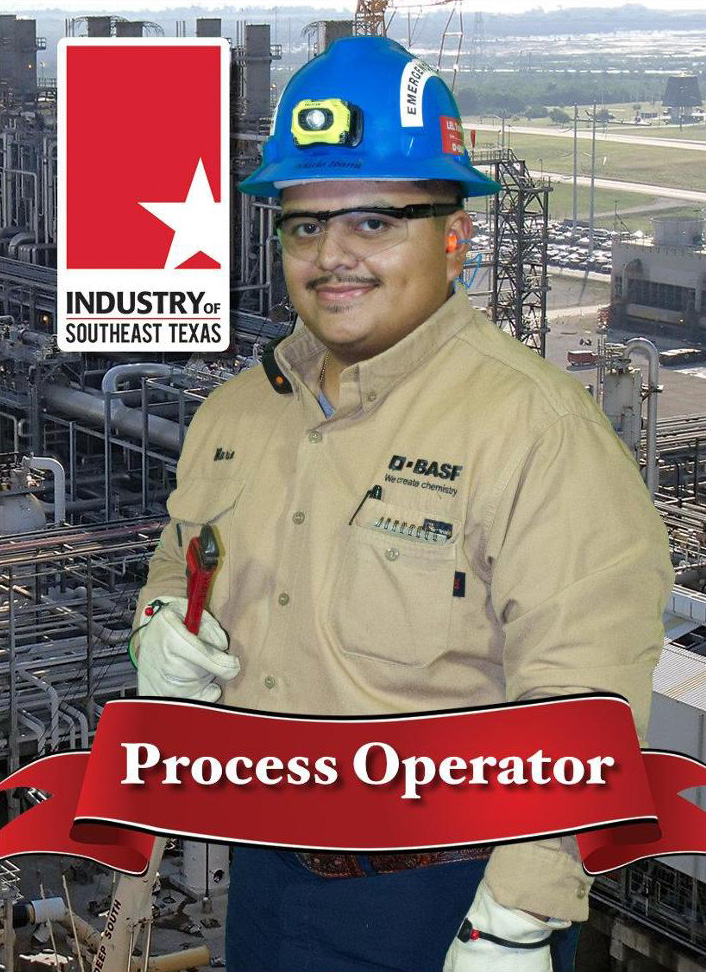
The Industry of Southeast Texas (ISET)
The Industry of Southeast Texas (ISET) is a Texas nonprofit corporation whose members are the individuals who manage the area’s industrial sites in Jefferson, Orange, Hardin, and Jasper Counties of Texas. It is dedicated to seeing that an environment of mutual understanding, communication and trust exists between industry and its neighbors.
Who we are
Members
ISET is made up of over 60 companies that manufacture, store and move useful products such as gasoline, plastics, electricity, paper, dimension lumber, particle board, plywood, synthetic rubber, ethylene, propylene, jet fuel, and diesel and who function as commodity terminals and pipelines.
Employees
ISET member companies employ more than 20,000 people in the Golden Triangle. One key element of the future success of Southeast Texas is skilled workforce. Check out our documentation for a few examples of careers in the energy sector and ask your student if they stopped by our booth.
Careers in the Energy Sector

CHEMICAL ENGINEER
Annual Entry-Level Salary $100,800
Annual Experienced Salary $ 174,000
Salary ranges vary greatly between different sizes and typed of petrochemical companies. This is a base average with potential overtime.
OCCUPATION SUMMARY
Chemical Engineers in the petrochemical industry are responsible for improving the efficiency of existing processes and planning for turnarounds,repairs and new projects to industrial facilities. Chemical Engineers may be assigned to research and technology organizations that lead the research and development of new chemicals, plastics and the products, explores improvement of existing chemicals and processes and provides technical service and application support. Chemical Engineers must have a strong background in mathematics, biology, physics and chemistry.
MINIMUM REQUIREMENTS
Minimum Requirements include a bachelor’s degree in chemical engineering. Prior related summer intern or co-op experience is preferred but not required. Equivalent military service in this field and/or work experience as an instrument technician may be acceptable to some companies. Some companies require a two-year associate degree in instrument technology. Many petrochemical companies require employees to have background standards to meet criteria necessary for obtaining a TWIC card.
ISET companies are equal opportunity employers, and all qualified applicants will receive consideration for employment without regard to race, color, religion, gender, sex, national origin, disability status, protected veteran status or any other characteristic protected by law.

ELECTRICIAN
Annual Entry-Level Salary $45.000-$50,000
Annual Experienced Salary $ 65,000-$95,000
Salary ranges vary greatly between different sizes and typed of petrochemical companies. This is a base average with potential overtime.
OCCUPATION SUMMARY
Electricians in the petrochemical industry are responsible for handling daily tasks as part of a team to ensure safe installation, testing and repairs of all types of electrical & electronic equipment and systems. Electricians must be able to comprehend technical information to install and troublshoot electrical equipment, read daigrams and have the ability to quickly grasp training in order to perform electrical work in operating units and other areas throughout the work site. They must be able to perform administrative tasks, using computers and other technology; must be able to make calculations to properly document records and other information. Must be able to understand permitting processes and requirements to comply with company and governmental processes and regulations.
MINIMUM REQUIREMENTS
Minimum Requirements include a bachelor’s degree in chemical engineering. Prior related summer intern or co-op experience is preferred but not required. Equivalent military service in this field and/or work experience as an instrument technician may be acceptable to some companies. Some companies require a two-year associate degree in instrument technology. Many petrochemical companies require employees to have background standards to meet criteria necessary for obtaining a TWIC card.
ISET companies are equal opportunity employers, and all qualified applicants will receive consideration for employment without regard to race, color, religion, gender, sex, national origin, disability status, protected veteran status or any other characteristic protected by law.

ELECTRICAL ENGINEER
Annual Entry-Level Salary $65, 400
Annual Experienced Salary $ 110, 600
Salary ranges vary greatly between different sizes and typed of petrochemical companies. This is a base average with potential overtime.
OCCUPATION SUMMARY
Electrical Engineers in the petrochemicalindustry are assigned to operating or manufacturing units where they work with several different teams to ensure proper electricaloperation of the facility. They review processes for improving efficiencies and reducing costs, and they work with the team to develop budgets. They identify opportunities for applying power and control engineering capabilities to add long-term economic value to the business and operatin!J groups.Electrical Engineers review electrical drawings, schematics/wiring diagrams, plot plans and layouts, elevating, piping and instrument diagrams, data sheets and other types of drawings. Electrical Engineers support power and controls systems projects, defining the scope of work, developing estimates and project schedules,managing implementation and mitigating risks. They provide effective engineered solutions through controlled software development and maintenance, assist in managing the technology support needs of business and engineering requirements as they relate to power and control systems and related applications.
MINIMUM REQUIREMENTS
Minimum requirements include a bachelor’s degree in electrical engineering. Prior related summer intern or co-op experience such as commissioning of instrument/electrical control systems, wiring/schematic designs, control/production relaying, etc. is a plus. Equivalent military service in this field and/or work experience as an instrument technician may be acceptable to some companies, though some companies require a two-year associate degree in instrument technology. Many petrochemical companies require employees to have background standards to meet criteria necessary for obtaining a TWIC card.
ISET companies are equal opportunity employers, and all qualified applicants will receive consideration for employment without regard to race, color, religion, gender, sex, national origin, disability status, protected veteran status or any other characteristic protected by law.

ENVIRONMENTAL SPECIALIST
Annual Entry-Level Salary $50, 000-68,000
Annual Experienced Salary $109,000-158.000
Salary ranges vary greatly between different sizes and typed of petrochemical companies. This is a base average with potential overtime.
OCCUPATION SUMMARY
Environmental Specialists in the petrochemical industry conduct research or perform investigations for the purpose of identifying, abating or eliminating sources of pollutants or hazards that affect either the environment or public health. Using knowledge of various scientific disciplines, may collect, synthesize, study, report and recommend action based on data derived from measurements or observations of air, food, soil, water and other sources.
MINIMUM REQUIREMENTS
Minimum requirements include a four-year degree but some do not. A considerable amount of work-related skill, knowledge or experience is needed for these occupations. Employees in these occupations usually need several years of work-related experience, on-the-job training and/or vocational training. Many of these occupations involve coordinating, supervising, managing or training others. Equivalent military service in this field and/or work experience as a health and safety specialist may be acceptable to some companies. Many petrochemical companies require employees to have background standards to meet criteria necessary for obtaining a TWIC card.
ISET companies are equal opportunity employers, and all qualified applicants will receive consideration for employment without regard to race, color, religion, gender, sex, national origin, disability status, protected veteran status or any other characteristic protected by law.

INSTRUMENTATION TECHNICIAN
Annual Entry-Level Salary $45.000-$50,000
Annual Experienced Salary $82.000-108.000
Salary ranges vary greatly between different sizes and typed of petrochemical companies. This is a base average with potential overtime.
OCCUPATION SUMMARY
Instrumentation Technicians in the petrochemicalindustry are responsible for handling daily tasks as part of a team to ensure safe, productive and cost-efficient maintenance of instrumentation and control systems. They also provide support for valves, electronic and pneumatic instruments, vibration monitors, electrical governors and other process instruments.Routine tasks include testing, maintaining, calibrating, troubleshooting and repairing process instruments to ensure that equipment is in good condition and reliable for use in daily operations.Instrument Technicians must be able to comprehend technicalinformation to maintain and repair equipment and can quickly grasp training and apply the knowledge to perform correction and preventative maintenance activities on instrumentation in operating units. Must be able to perform administrative tasks, using computers and other technology;must be able to make calculations to effectively repair and maintain equipment and inventories; must be able to properly document records, drawings, databases; must be able to understand permitting processes and requirements to comply with company and governmental processes and regulations.
MINIMUM REQUIREMENTS
Minimum requirements include completion of two-year technical or vocational school for instrumentation. Equivalent military service in this field and/or work experience as an instrument technician may be acceptable to some companies. Some companies require a two-year associate degree in instrument technology. Many petrochemical companies require employees to have background standards to meet criteria necessary for obtaining a TWIC card.
ISET companies are equal opportunity employers, and all qualified applicants will receive consideration for employment without regard to race, color, religion, gender, sex, national origin, disability status, protected veteran status or any other characteristic protected by law.

LAB TECHNICIAN
Annual Entry-Level Salary $45,000-$48,000
Annual Experienced Salary $83,000-$95,000
Salary ranges vary greatly between different sizes and typed of petrochemical companies. This is a base average with potential overtime.
OCCUPATION SUMMARY
Lab Technicians in the petrochemical industry conduct chemical and physical laboratory tests to assist scientists in making qualitative and quantitative analyses of solids, liquids, and gaseous materials for research and development of new products or processes, quality control, maintenance of environmental standards and other work involving experimental, theoretical or practical application of chemistry and related sciences.
MINIMUM REQUIREMENTS
Minimum requirements include training in vocational schools, related on-the-job experience or an associate degree. Previous work-related skill, knowledge or experience is required for these occupations. Employees in these occupations usually need one or two years of training involving both on-the-job experience and informal training with experienced workers. A recognized apprenticeship program may be associated with these occupations. These occupations usually involve using communication and organizational skills to coordinate, supervise, manage or train others to accomplish goals. Many petrochemical companies require employees to have background standards to meet criteria necessary for obtaining a TWIC card.
ISET companies are equal opportunity employers, and all qualified applicants will receive consideration for employment without regard to race, color, religion, gender, sex, national origin, disability status, protected veteran status or any other characteristic protected by law.

MAINTENANCE TEAM LEADER (MTL)
Annual Entry-Level Salary $85,000
Annual Experienced Salary $95,000
Salary ranges vary greatly between different sizes and typed of petrochemical companies. This is a base average with potential overtime.
OCCUPATION SUMMARY
Maintenance Team Leaders in petrochemical facilities are responsible for a designated group or team of crafts who report to them. They are responsible for lining up jobs, managing the performance and quality of others on the team. They are also responsible for managing budgets, scheduling and handling other responsibilities of the team they lead.
MINIMUM REQUIREMENTS
Minimum requirements include a two-year associate degree or apprenticeship. Must have experience as a master mechanic or in a trade such as a boilermaker, welder or pipefitter. Equivalent military service in this field and/or work experience as an instrument technician may be acceptable to some companies. Some companies require a two-year associate degree in instrument technology.Many petrochemical companies require employees to have background standards to meet criteria necessary for obtaining a TWIC card.
ISET companies are equal opportunity employers, and all qualified applicants will receive consideration for employment without regard to race, color, religion, gender, sex, national origin, disability status, protected veteran status or any other characteristic protected by law.

MECHANICAL ENGINEER
Annual Entry-Level Salary $83, 100
Annual Experienced Salary $140, 500
Salary ranges vary greatly between different sizes and typed of petrochemical companies. This is a base average with potential overtime.
OCCUPATION SUMMARY
Mechanical Engineers in the petrochemical industry provide engineering design and guidance, working with other engineers and production personnel to develop and maintain work processes. They prepare and present technical status reviews, analyze equipment performance and recommend solutions that improve on-stream time and repair costs. They must be able to solve complex problems where analysis of a situation and data in-depth evaluation are required.Mechanical engineers review equipment failures in the field and create solutions that improve performance and reduce downtime.Rotating engineers are mechanical engineers who specialize in rotating pumps, compressors and turbines.PEl engineers specialize in fixed equipment such as piping, vessels and tanks.
MINIMUM REQUIREMENTS
Minimum requirements include a bachelor’s degree in mechanical engineering. Prior related summer intern or co-op experience is preferred but not required. Equivalent military service in this field and/or work experience as an instrument technician may be acceptable to some companies. Some companies require a two-year associate degree in instrument technology. Many petrochemical companies require employees to have background standards to meet criteria necessary for obtaining a TWIC card.
ISET companies are equal opportunity employers, and all qualified applicants will receive consideration for employment without regard to race, color, religion, gender, sex, national origin, disability status, protected veteran status or any other characteristic protected by law.

MILLWRIGHT
Annual Entry-Level Salary $37,000-$49,000
Annual Experienced Salary $78,000-$91,000
Salary ranges vary greatly between different sizes and typed of petrochemical companies. This is a base average with potential overtime.
OCCUPATION SUMMARY
A Millwright in the petrochemical industry installs, dismantles or moves machinery and heavy equipment according to layout plans, blueprints or other drawings.
MINIMUM REQUIREMENTS
Minimum requirements include a high school diploma. Some previous work-related skill, knowledge or experience is usually needed. Employees in these occupations need anywhere from a few months to one year of working with experienced employees. A recognized apprenticeship program may be associated with these occupations. Many petrochemical companies require employees to have background standards to meet criteria necessary for obtaining a TWIC card.
ISET companies are equal opportunity employers, and all qualified applicants will receive consideration for employment without regard to race, color, religion, gender, sex, national origin, disability status, protected veteran status or any other characteristic protected by law.

OCCUPATION HEALTH AND SAFETY SPECIALIST
Annual Entry-Level Salary $73,000-$78.000
Annual Experienced Salary $92.000-113,000
Salary ranges vary greatly between different sizes and typed of petrochemical companies. This is a base average with potential overtime.
OCCUPATION SUMMARY
Occupational Health and Safety Specialist in the petrochemical industry review, evaluate and analyze work environments and design programs and procedures to control, eliminate and prevent disease or injury caused by chemical, physical and biological agents or ergonomic factors. May conduct inspections and enforce adherence to laws and regulations governing the health and safety of individuals.
MINIMUM REQUIREMENTS
Minimum requirements includes a four-year degree. A considerable amount of work-related skill, knowledge or experience is needed for these occupations. Employees in these occupations usually need several years of work-related experience, on-the-job training and/or vocational training. Many of these occupations involve coordinating, supervising, managing or training others. Equivalent military service in this field and/or work experience as a health and safety specialist may be acceptable to some companies. Many petrochemical companies require employees to have background standards to meet criteria necessary for obtaining a TWIC card.
ISET companies are equal opportunity employers, and all qualified applicants will receive consideration for employment without regard to race, color, religion, gender, sex, national origin, disability status, protected veteran status or any other characteristic protected by law.

PROCESS OPERATOR
Annual Entry-Level Salary $59,500
Annual Experienced Salary $110,600
Salary ranges vary greatly between different sizes and typed of petrochemical companies. This is a base average with potential overtime.
OCCUPATION SUMMARY
Process Operators in the petrochemical industry play a critical role in the safe operation and optimization of petrochemical units. They run control room instrumentation systems and are responsible for the operation of pumps,compressors, fired heaters, reactors, extruders, distillation columns and other plant equipment. Process Operators work with maintenance and other departments to ensure environmental, production, safety and cost goals are met and make changes to the operating process, if necessary to maintain product quality. Operators are responsible for running units, making decisions about optimizing units, collaborating with others to ensure optimal performance. Operators are responsible for the day-to-day activities and performance for their assigned units. Operators adjust the product output by adjusting the performance of the unit to safely meet demands.
MINIMUM REQUIREMENTS
Minimum requirements include a two-year degree in process technology or related field. Candidates with a four-year industrial-related degree will also be considered. Equivalent military service in this field and/or work experience as an instrument technician may be acceptable to some companies. Some companies require a two-year associate degree in instrument technology. Many petrochemical companies require employees to have background standards to meet criteria necessary for obtaining a TWIC card.
ISET companies are equal opportunity employers, and all qualified applicants will receive consideration for employment without regard to race, color, religion, gender, sex, national origin, disability status, protected veteran status or any other characteristic protected by law.

WELDER
Annual Entry-Level Salary $44,400
Annual Experienced Salary $70, 700
Salary ranges vary greatly between different sizes and typed of petrochemical companies. This is a base average with potential overtime.
OCCUPATION SUMMARY
Welders in petrochemical facilities are responsible for planning, laying out and setting up welding equipment for construction, production or repair work. They burn various types of materials to fabricate and assemble different types of metals. Various levels of experience and training are required to perform different types of welding.
MINIMUM REQUIREMENTS
Minimum requirements include a high school diploma. Some previous work-related skill, knowledge or experience is usually needed. Employees in these occupations need anywhere from a few months to one year of working with experienced employees. A recognized apprenticeship program may be associated with these occupations. These occupations often involve using your knowledge and skills to help others.Many petrochemical companies require employees to have background standards to meet criteria necessary for obtaining a TWIC card.
ISET companies are equal opportunity employers, and all qualified applicants will receive consideration for employment without regard to race, color, religion, gender, sex, national origin, disability status, protected veteran status or any other characteristic protected by law.